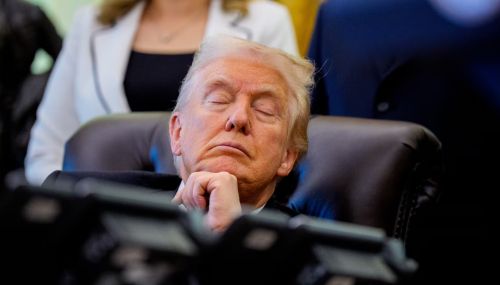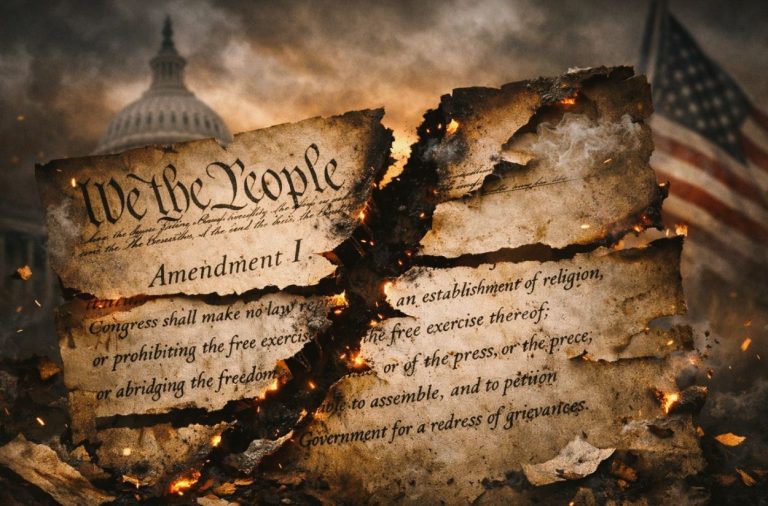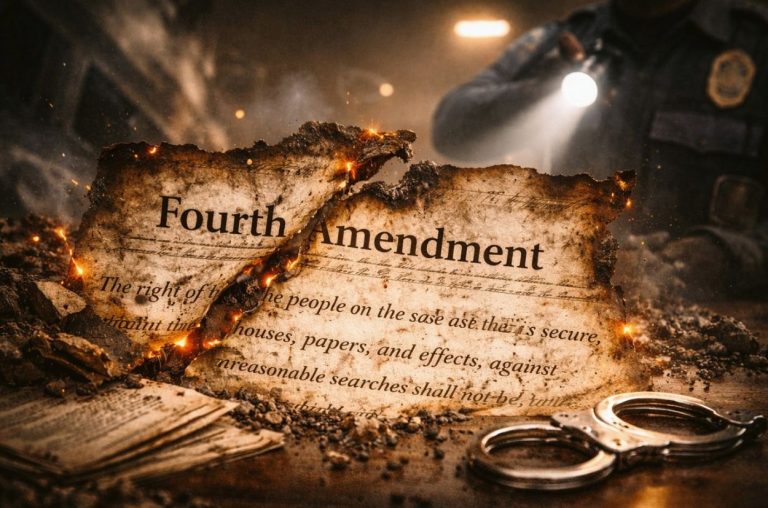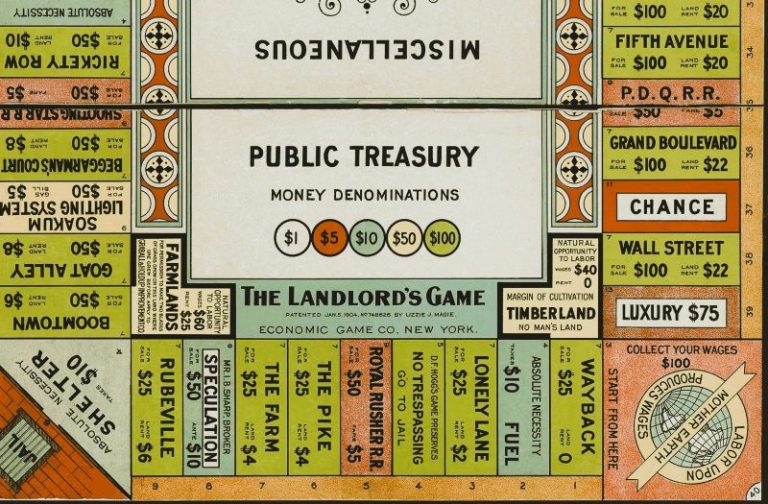

Figures like Russell Vought and Stephen Miller, operating beyond public scrutiny, have become the de facto stewards of government policy.

By Matthew A. McIntosh
Public Historian
Brewminate
Introduction
It is increasingly difficult to ignore what the cameras show and what the microphones capture. President Donald Trump often struggles to complete sentences, wanders off topic mid-speech, and appears dazed during public events, sometimes even closing his eyes for long stretches as aides rush to fill the silence. What once passed as rhetorical chaos has taken on a different tone: fatigue, confusion, and detachment. Questions about his cognitive fitness, long dismissed as partisan attacks, have become unavoidable subjects of legitimate public concern.
Yet the more revealing story may not be about the president’s decline itself, but about what has filled the vacuum around him. As Trump falters, a network of loyal operatives, most notably Russell Vought, his former budget director and now head of a sprawling political infrastructure outside the White House, has risen to dominate decision-making. ProPublica describes Vought as functioning like a “shadow president,” orchestrating the dismantling of agencies and embedding loyalists throughout the executive branch. His influence now touches nearly every policy front, from staffing to rule-making.
Together, these two dynamics, an incapacitated figurehead and an empowered network of unelected actors, define one of the most dangerous configurations of power in modern American history. The presidency has not collapsed; it has been repurposed. Trump remains the face of authority, but the substance of governance appears to be shifting elsewhere, hidden from scrutiny and shielded from accountability. What emerges is not merely a weakened leader, but a re-engineered state: one in which the image of power endures while its operation moves deeper into the shadows.
Signs of Cognitive Decline
Public concern over President Trump’s cognitive state has intensified as his behavior becomes harder to reconcile with the demands of the office. In recent appearances, he has slurred his speech, repeated disjointed anecdotes, and confused names of officials and countries during policy briefings. Even longtime allies have privately expressed unease about his erratic communication and prolonged moments of visible disorientation. At campaign-style rallies, he frequently digresses into unrelated topics or revisits personal grievances with no clear point of connection.
Professional observers have begun to voice similar concerns. A Yahoo News interview with cognitive specialist Dr. John Gartner, who has studied presidential behavior for years, described Trump’s recent conduct as showing “clear cognitive collapse” marked by deteriorating focus and impulse control. California Governor Gavin Newsom publicly mocked Trump and dubbed him “The Nodfather” for falling asleep in meetings, a jab that, while political, reflected a broader perception spreading beyond partisan boundaries. These moments, once dismissed as theatrical eccentricities, have become patterns.
Despite this growing body of evidence, the White House continues to insist that Trump is in “excellent health,” releasing minimal documentation and dismissing all questions as “politically motivated.” That lack of transparency only deepens public mistrust. In an earlier era, a sitting president’s evident lapses, such as Ronald Reagan’s late-term disorientation later linked to Alzheimer’s, would have triggered bipartisan concern. Today, partisan loyalty and fear of reprisal have replaced honesty, leaving the American public to piece together its own diagnosis through televised fragments.
What emerges is the image of a president increasingly detached from governance, yet still wielding its symbols: the podium, the pen, the seal. The façade of vitality masks an unsettling truth, that the most powerful office in the world may now be functioning largely on autopilot. As Trump’s coherence fades, governance has not paused. It has simply shifted to others willing to act in his name.
The Rise of the “Shadow Government”
As President Trump’s public presence grows less coherent, a parallel power structure has quietly emerged within and around his administration, a constellation of ideologues, loyalists, and former officials shaping federal policy in his stead. At its center stands Russell Vought, the former director of the Office of Management and Budget, who now leads a dense network of aligned organizations and personnel pipelines working to reshape the government from the inside. Vought oversees staffing lists, drafts executive orders, and coordinates directives across agencies, functions that, in theory, belong to the president himself.
Vought’s influence extends far beyond the traditional boundaries of advisory power. He has built what some in Washington describe as a “government-in-waiting,” a network of conservative think tanks, legal operatives, and former staffers who now serve as the brain trust for Trump’s second term. With the president increasingly removed from daily governance, these figures have assumed extraordinary latitude to shape domestic and foreign policy without public deliberation. Their approach is guided by an ideological mission: to dismantle the administrative state and replace it with a streamlined executive apparatus loyal not to the Constitution’s checks and balances, but to a single political identity.
The result is a White House that functions less like a command center than a stage set, a place where Trump signs whatever is placed before him, while the real machinery hums behind closed doors. Longtime adviser Stephen Miller, working closely with Vought, continues to influence immigration and law enforcement policy, shaping orders and memos that often bypass traditional review. Together, these actors have consolidated a degree of power unprecedented for unelected aides, forming what one former official described as “a shadow Cabinet operating under the seal of the presidency.”
This phenomenon is not entirely new. Presidents have long relied on powerful advisors, Woodrow Wilson’s wife Edith effectively ran the executive branch during his stroke, and Ronald Reagan’s inner circle shielded his decline in later years. But the difference now lies in scale and intention. What was once crisis management has become a governing model. The administration’s reliance on unelected figures is not a stopgap; it is the system itself.
The implications are profound. The presidency, as conceived by the framers, depends on the active, informed participation of the individual elected to it. When that person becomes functionally absent, power does not disappear; it migrates. And in this case, it has migrated to operatives who are neither elected nor directly accountable. The image of Trump as a defiant leader remains useful for mobilization, but the substance of authority now belongs to others. The shadow government does not whisper from behind the curtain; it governs in the open, counting on the chaos of Trump’s decline to keep the public distracted from who is truly in charge.
Why It Matters for Democracy
The health of a democracy depends not only on the consent of the governed but on the capacity of its leaders to exercise that power with clarity and accountability. When a president is no longer capable of fulfilling that role, yet remains its public face, the office becomes hollowed out from within. The Guardian described Trump’s current presidency as “a spectacle of vacancy,” a phrase that captures both the optics and the danger. In such conditions, power does not dissipate; it metastasizes. The White House continues to function, orders are signed, and policies are enacted, but the locus of decision-making drifts away from visibility.
This drift erodes one of the foundational safeguards of the American system: knowable responsibility. When the public cannot discern who is making decisions, accountability becomes impossible. The Constitution presumes that authority flows through a single, elected executive answerable to voters. If governance instead operates through surrogates who wield power in the president’s name but beyond public scrutiny, the principle of democratic consent is quietly nullified. What emerges is not dictatorship in the traditional sense (a single, visible tyrant) but something more insidious: a diffused, unaccountable oligarchy operating under the cover of a familiar face.
Historically, moments of concealed leadership have produced lasting institutional damage. Woodrow Wilson’s stroke in 1919 led to months of de facto governance by his wife and aides, a constitutional gray area that Congress never fully confronted. Franklin Roosevelt’s declining health in 1944 left crucial wartime decisions to a handful of unelected advisors. In both cases, secrecy prevailed over transparency, and the public learned only later how far the balance of power had shifted. The difference now is that the concealment is neither accidental nor temporary; it is strategic. Trump’s visible decline offers both distraction and cover for those who benefit from operating in his shadow.
The implications extend beyond Washington. When voters witness incoherence from the president but stability from the machinery around him, they may mistake the system’s endurance for strength rather than symptom. That illusion breeds complacency. A government can appear to function normally while its democratic core decays. Bureaucrats still process forms, soldiers still follow orders, and the press still attends briefings, yet the meaning of consent has evaporated because the people no longer know whom they are consenting to.
Ultimately, democracy cannot survive on symbolism alone. The presidency is not a logo or a brand; it is an active institution bound to human judgment. When that judgment falters, the only defense is transparency, and the only remedy is accountability. Without them, the state may continue to operate, but it will no longer govern itself. It will be governed, quietly and efficiently, by those who were never chosen to lead it.
What the Public and Institutions Should Do
The first obligation of any republic is to face its crises honestly. Pretending that all is well while the president struggles to complete sentences and shadow figures steer the ship of state is not patriotism; it is denial. The public deserves transparency about the president’s capacity to govern. That means full, independent medical evaluations released without political interference, as well as a clear chain of command within the executive branch. Previous presidents, facing far less visible impairment, voluntarily underwent cognitive assessments to maintain public trust. Trump’s refusal to do so, and his administration’s stonewalling of legitimate questions, signals not strength, but fear of what transparency might confirm.
Congress must also reclaim its constitutional oversight role. Lawmakers have the authority to demand documentation of presidential fitness and to clarify who is issuing directives when the president cannot. They can strengthen the procedures surrounding the Twenty-Fifth Amendment, ensuring it cannot be blocked by loyalists with conflicting interests. Oversight committees should subpoena testimony from those effectively functioning as executive decision-makers, including Russell Vought and other senior operatives identified by ProPublica. The aim is not to humiliate a declining president, but to preserve the legitimacy of the office he occupies.
The media and civil society share a parallel duty. Newsrooms must resist both sensationalism and self-censorship, reporting verified facts about the president’s condition without descending into rumor or spectacle. Independent organizations should track where power is actually being exercised within the executive branch. If decisions are being made by unelected officials under the president’s name, that truth must be documented and publicized. Transparency is not a partisan act; it is a democratic necessity. The more that secrecy governs perception, the more fragile democracy becomes.
Finally, citizens must refuse to normalize incoherence at the highest level of government. The office of the presidency belongs to the people, not to any one man or movement. When that office is reduced to a signature and a slogan while others rule from the shadows, the republic itself is diminished. Civic vigilance (the willingness to demand clarity, truth, and accountability) is the only antidote to quiet authoritarianism. If the president cannot speak for himself, the people must speak louder for the Constitution that he swore to defend.
Conclusion
The image of power can survive long after its substance has decayed. President Trump still occupies the Oval Office, still signs his name to directives, still appears behind the presidential seal, but the evidence suggests a hollowing-out of the office itself. His incoherence and detachment, visible to all who care to see, have created a vacuum that others now fill with alarming ease. Figures like Russell Vought and Stephen Miller, operating beyond public scrutiny, have become the de facto stewards of government policy. What once required the will of the president now proceeds through his absence. The façade of control remains intact, but behind it, democracy is being administered by proxy.
This arrangement may appear stable for now, but it is profoundly dangerous. A system that relies on the weakness of its leader to conceal the strength of its unelected actors cannot sustain legitimacy. It thrives only on confusion, the public’s uncertainty about who governs and its reluctance to confront that question directly. Such opacity is the breeding ground of authoritarianism. When the citizenry can no longer trace the line between authority and accountability, the republic’s constitutional foundations begin to crumble not through force, but through fog.
Restoring clarity will require courage, from Congress, from the press, and from the public itself. It will mean demanding transparency over deference, truth over myth, and a functioning presidency over the comforting illusion of one. The oath of office, sworn before the nation, binds a president to duty, but it also binds the people to vigilance. When that bond is broken, governance becomes theater, and liberty becomes an audience’s illusion.
History’s warning is clear: democracies rarely die in a single moment. They erode through silence, distraction, and denial. Trump’s decline is not just a personal tragedy or a partisan talking point; it is a national test. If the country accepts rule by shadow, it consents to its own dimming. And when the lights of democracy flicker, it is never the darkness that is to blame, but the failure to keep the flame.
Originally published by Brewminate, 11.11.2025, under the terms of a Creative Commons Attribution-NonCommercial-NoDerivatives 4.0 International license.


